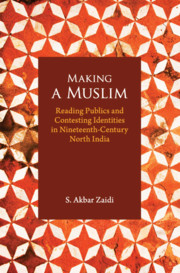Preface: The Making of This Book
Published online by Cambridge University Press: 24 March 2021
Summary
Unlike most academic books, I begin this Preface with something of my own background. Even if I were to eliminatemany of the frills and do away with some interesting details, the story of how this book came into being cannot be told without delving into my own biography.
Having taught political economy and institutional economics at Karachi University for over a decade and having published numerous academic articles and books based on my research, I became bored with such themes and wanted to study something different, preferably in the social sciences. One day in Karachi during the second tenure of Prime Minister Nawaz Sharif, probably sometime in 1999, I read an article in one of the Karachi newspapers on how the prime minister of Pakistan had walked into a government-owned bank, the National Bank of Pakistan and, not finding the manager in the bank, fired him. I found this behaviour quite odd, without any sort of accountability or investigation. I imagined this to be a darbari form of culture and attitude which was, I thought, inherited from Mughal styles of authoritarian governance where power rested in the body of the emperor. I believed Nawaz Sharif's behaviour was a continuation of such styles of arbitrary governance. Perceiving this as a worthy topic for a dissertation in History, I wrote what I thought was a proposal that would get me admission into a history PhD programme.
I sent this ‘proposal’ to a number of scholars who worked on South Asian history in the United Kingdom (UK) and asked if I might meet with them to discuss it. I was already in my mid-forties at this stage and was not sure how I would be received, especially as I was looking forward to working in a new discipline and moving away from economics and political economy, where I had worked for almost two decades. I went to meet Professor Francis Robinson at the Royal Holloway College in London with my ‘proposal’, and he suggested that I do an MA in history first and then see if I wanted to do a PhD. He set my own research ideas to the side, and instead suggested that I work on the Tablighi Jama‘at.
- Type
- Chapter
- Information
- Making a MuslimReading Publics and Contesting Identities in Nineteenth-Century North India, pp. ix - xviiiPublisher: Cambridge University PressPrint publication year: 2021



